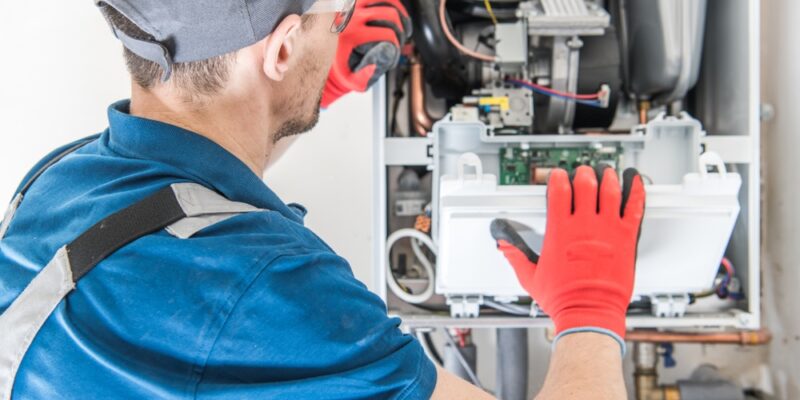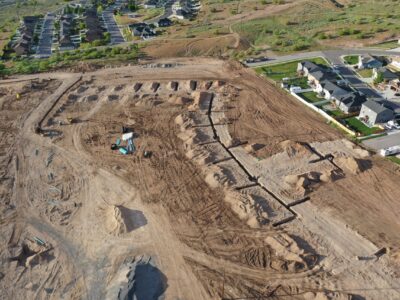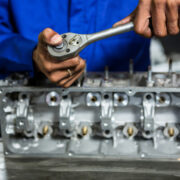
Introduction
Colony Heating and Air Conditioning play a pivotal role in ensuring optimal comfort and maintaining a pleasant living environment. Whether you’re battling freezing winters or scorching summers, having a reliable HVAC system is essential for creating a cozy indoor atmosphere. In this article, we’ll delve into the intricacies of Colony Heating and Air Conditioning, exploring components, common issues, maintenance benefits, and more.
Components of Colony Heating and Air Conditioning
Exploring the Heating Components
Heating systems in colonies vary, from traditional furnaces to advanced heat pumps. Understanding the functioning of these components is crucial for efficient heating during colder months. Furnaces use gas, oil, or electricity to generate heat, while heat pumps extract warmth from the air or ground.
Overview of the Air Conditioning Components
When summer arrives, a functional air conditioning system becomes indispensable. The components, including the compressor, evaporator, and condenser, work together to cool and dehumidify indoor spaces. Exploring these components helps homeowners grasp the mechanics of their cooling systems.
Common Issues and Solutions
Identifying Common Problems in Heating Systems
From a malfunctioning thermostat to clogged filters, heating systems encounter various issues. Identifying these problems early on can prevent major breakdowns. We’ll discuss troubleshooting tips and simple solutions that homeowners can implement without professional help.
Troubleshooting Air Conditioning Issues
Air conditioning problems range from refrigerant leaks to electrical issues. This section will guide readers through diagnosing and addressing common air conditioning malfunctions. Timely solutions can save both time and money.
Benefits of Regular Maintenance
The Impact of Routine Maintenance on System Efficiency
Regular maintenance is the key to ensuring HVAC systems operate at peak efficiency. This part of the article will highlight the benefits of routine check-ups, including improved performance, energy efficiency, and increased lifespan.
Cost Savings and Longevity with Proper Care
Investing in maintenance may seem like an additional expense, but it pays off in the long run. We’ll explore how routine care leads to cost savings on repairs and replacements, ultimately extending the life of heating and cooling systems.
Energy Efficiency in HVAC
Discussing Eco-Friendly Options for Heating and Cooling
As environmental concerns grow, so does the demand for eco-friendly HVAC solutions. This section will introduce readers to green heating and cooling options, such as solar-powered systems and energy-efficient technologies.
Tips for Reducing Energy Consumption
Beyond eco-friendly systems, simple habits and adjustments can significantly reduce energy consumption. This part will offer practical tips for homeowners to make their heating and cooling practices more energy-efficient.
Choosing the Right System for Your Colony
Factors to Consider When Selecting a Heating and Air Conditioning System
Every colony has unique climate characteristics. This section will guide readers through important considerations when choosing an HVAC system, such as climate, size of the space, and energy requirements.
Comparing Different Models and Technologies
From traditional HVAC systems to innovative technologies, the market offers a wide array of choices. We’ll compare different models, discussing the advantages and disadvantages of each, to help readers make informed decisions.
Professional Installation vs. DIY
Pros and Cons of Professional Installation
While professional installation ensures expertise and compliance with regulations, it comes with a cost. This part will weigh the advantages and disadvantages of hiring professionals for HVAC installations.
Brief Guide for Those Considering a DIY Approach
For the adventurous DIY enthusiasts, we’ll provide a brief guide on installing heating and air conditioning systems independently. However, we’ll emphasize the importance of understanding one’s limitations and seeking professional help when needed.
Colony-Specific Considerations
Addressing Unique Climate Challenges in Colonies
Certain colonies face specific climate challenges. This section will offer insights into adapting HVAC systems to meet local needs, ensuring optimal performance in varying conditions.
Adapting HVAC Systems to Local Needs
Understanding the unique requirements of a colony helps in tailoring HVAC solutions. We’ll discuss how local factors, such as humidity levels and temperature fluctuations, should influence system choices.
Modern Trends in Heating and Cooling
Integration of Smart Technology in HVAC Systems
The future of heating and air conditioning is intertwined with smart technology. This part will explore how automation and smart devices are revolutionizing HVAC systems, providing enhanced comfort and energy efficiency.
Trends Shaping the Future of Heating and Air Conditioning
From artificial intelligence to sustainable innovations, we’ll discuss the trends shaping the future of HVAC. Readers will gain insights into what to expect in the rapidly evolving world of heating and cooling technology.
Cost Estimates and Budgeting
Understanding Initial Costs and Long-Term Expenses
Budget considerations are crucial when investing in heating and air conditioning. We’ll break down the initial costs of HVAC systems and discuss long-term expenses to help readers plan their budgets effectively.
Tips for Budgeting for Heating and Air Conditioning Projects
With a focus on practical budgeting tips, this section will guide readers on how to allocate funds for HVAC projects, ensuring they get the best value for their investment.
Colony Heating and Air Conditioning Regulations
Compliance with Local Regulations and Standards
Different colonies may have specific regulations governing HVAC installations. We’ll emphasize the importance of compliance with local standards and regulations to avoid legal issues and ensure the safety and efficiency of heating and air conditioning systems. Additionally, we’ll discuss how certified technicians play a crucial role in meeting these standards.
The Importance of Certified Technicians for Installations
Certified technicians bring a level of expertise and professionalism to HVAC installations. We’ll delve into why hiring a certified professional is essential for ensuring that the heating and air conditioning systems meet all safety and performance standards.
Customer Reviews and Testimonials
The Significance of Customer Feedback in Choosing HVAC Services
In this section, we’ll highlight the importance of customer reviews in the decision-making process. Readers will learn how firsthand experiences of other homeowners can guide them in selecting reliable and trustworthy HVAC services.
Where to Find Reliable Reviews
Navigating the plethora of online reviews can be overwhelming. We’ll provide insights into where readers can find trustworthy reviews and testimonials, helping them make informed choices when selecting heating and air conditioning services.
DIY Maintenance Tips
Simple Steps for Homeowners to Maintain Their HVAC Systems
Empowering homeowners to take charge of their HVAC system’s well-being, we’ll offer practical DIY maintenance tips. From changing air filters to inspecting ducts, these simple steps can contribute to the longevity of the heating and air conditioning units.
Tools and Resources for DIY Enthusiasts
For readers keen on hands-on maintenance, we’ll discuss essential tools and resources needed for DIY HVAC care. This section aims to guide enthusiasts in building their toolkit and accessing reliable resources for effective maintenance.
Emergency Situations and Quick Fixes
What to Do in Case of Sudden Breakdowns
HVAC breakdowns can be stressful, especially during extreme weather conditions. This part of the article will provide a step-by-step guide on what homeowners should do in case of sudden heating or cooling system failures.
Temporary Solutions Before Professional Help Arrives
While waiting for professional assistance, there are temporary fixes that homeowners can apply to mitigate issues. We’ll share quick and safe solutions to help readers manage emergencies before expert help arrives.
Conclusion
In conclusion, Colony Heating and Air Conditioning are integral components of a comfortable and efficient home environment. This article has covered a wide array of topics, from understanding the components of HVAC systems to exploring modern trends and addressing colony-specific considerations. By implementing the insights provided, homeowners can ensure their heating and air conditioning systems operate optimally, enhancing both comfort and energy efficiency.
FAQs About Colony Heating and Air Conditioning
- Is it necessary to hire a professional for HVAC maintenance, or can I do it myself?
While some maintenance tasks can be performed by homeowners, it’s advisable to have a professional conduct regular check-ups. Certified technicians bring expertise to identify potential issues that might go unnoticed. - How often should I change the air filters in my HVAC system?
Air filters should typically be changed every 1-3 months, depending on factors like the type of filter and the level of usage. Regular filter changes contribute to better indoor air quality and system efficiency. - What are the signs that my HVAC system needs professional attention?
Signs include unusual noises, uneven heating or cooling, frequent cycling, and increased energy bills. If you notice any of these, it’s advisable to consult a certified technician for a thorough inspection. - Are smart HVAC systems worth the investment?
Smart HVAC systems offer convenience, energy savings, and enhanced control. While the initial investment may be higher, the long-term benefits in terms of efficiency and comfort often outweigh the cost. - How can I make my HVAC system more energy-efficient?
Simple steps like regular maintenance, proper insulation, and adjusting the thermostat can enhance energy efficiency. Additionally, consider upgrading to energy-efficient models and exploring alternative energy sources.















